Niger Delta Monarchs Unite: Exposing False Accusations and Championing the Battle to End Oil-Related Violence
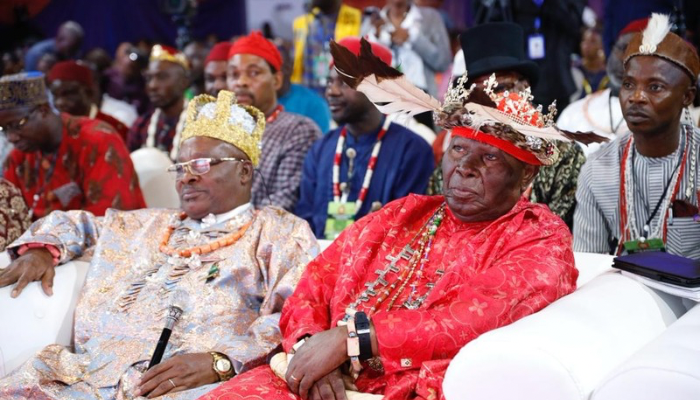
Indigenous Leaders Champion the PINL Model as a Key Solution for Pipeline Protection
Leaders from indigenous communities situated in oil-rich zones and pipeline host areas have raised pressing concerns about their challenging position amid competing pressures. They lament being scapegoated by government authorities whenever pipeline sabotage occurs, while simultaneously facing criticism from local youth groups for not sufficiently advocating for governmental benefits on their behalf.
This open exchange unfolded during the regular gathering of pipeline host communities along the Eastern Corridor, convened in Port Harcourt on Thursday, October 23, 2025. This forum is regularly hosted by Pipeline Infrastructure Nigeria Limited (PINL), a pivotal organization in pipeline security and management.
Samuel La Nnee, the Tai monarch (Gbeneme Tai), was among the first to address the assembly, drawing attention to the marginalization experienced by southern traditional rulers compared to their northern peers, who often enjoy greater recognition and support.

He elaborated, “Our predicament is complex. The government holds us accountable for pipeline damages, yet the youth accuse us of neglecting their interests. Despite armed security presence around these infrastructures, vandalism continues unabated, and we bear the brunt of the blame.”
La Nnee commended PINL’s proactive initiatives and urged unified efforts to protect vital infrastructure. “Although we are not contractors for PINL, their influence is visible across the region. The well-being of our communities is intrinsically linked to Nigeria’s economic stability. Supporting PINL equates to safeguarding our collective future.”
He further noted, “PINL engages with me through genuine dialogue rather than financial incentives. Unlike northern monarchs who receive substantial backing, southern leaders often support their people with scarce resources. Our authority is frequently undermined by local government officials. We call on the government to empower us to lead effectively. Our aspiration is for this region to flourish as a vibrant economic center, much like Singapore.”
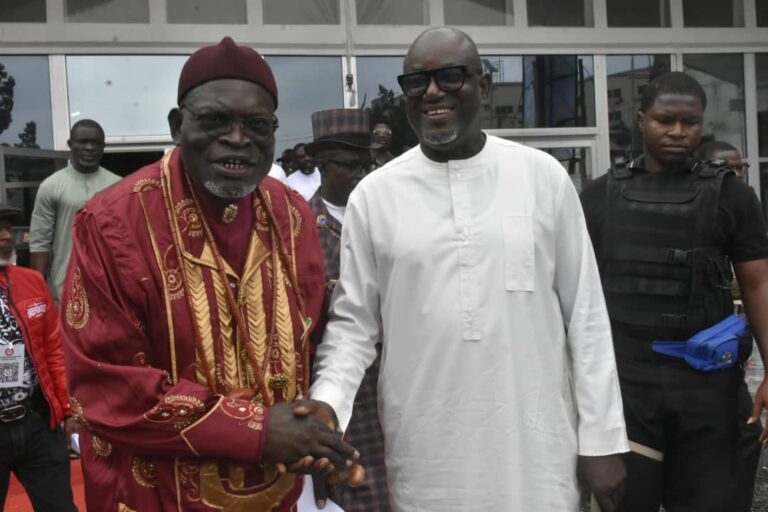
Sergeant Chidi Awuse, monarch of Emuohua, shared his reflections as a first-time participant in the forum, acknowledging the federal government’s strong reliance on PINL to safeguard critical revenue-generating assets.
“Frankly, many federal officials have become unreachable. When monarchs raise concerns, they are often dismissed. Governors and local government leaders appear untouchable,” he observed.
Despite these obstacles, Awuse reaffirmed traditional rulers’ dedication to asset protection, irrespective of personal gain. “We deeply care for our people, but our influence is limited. It is imperative that the government grants monarchs the authority and mandate necessary to execute their duties effectively.”
He emphasized, “Token gestures will not restore peace unless the government addresses the welfare of the communities that generate this wealth. This oil rightfully belongs to us.”
Awuse also highlighted the inequitable treatment of the region, stating, “Communities are frequently blamed for pipeline vandalism, yet our capacity as traditional leaders is minimal. If oil were produced elsewhere in Nigeria, those regions would not be neglected or left pleading for basic infrastructure repairs. We are treated as second-class citizens.”
Both monarchs and youth delegates praised the progress made in environmental conservation, especially in pollution reduction. Nnadi Nzeribe, the Eze and Oguta monarch from Imo State, reported cleaner waterways in his domain following the eradication of illegal refining activities locally known as “kpofire.” He attributed this success to PINL’s interventions, despite limited support from security agencies.
He also voiced concerns about the shortage of domestic cooking gas, urging government subsidies to enhance availability. “While gas is being exported, local communities struggle to access it. Transparency in gas revenue allocation is essential,” he added.
Patricia Ogbonnaya, Ada Ekpeye and representative of King Kevin Anugwo of Ekpeye Logbo, appealed to the federal government to sustain collaboration with PINL due to their operational excellence. She stressed that PINL’s presence has significantly curtailed pollution and oil theft, enhancing community security.
“Previous administrations failed to provide lasting solutions, but PINL has succeeded through integrity, efficiency, and authentic community involvement,” she affirmed. “We urge the government to broaden PINL’s mandate rather than replace them. Priority should be given to local contractors over armed groups, as locals possess invaluable knowledge.”
Ogbonnaya also requested that the Minister of Petroleum attend future forums to engage directly with host communities. She noted that PINL’s partnership with these communities has boosted production and fostered development.
Additionally, the Ekpeye delegation raised environmental concerns, particularly deforestation driven by increased firewood use due to kerosene shortages. “We urge the government to ensure kerosene availability to alleviate pressure on our forests,” she appealed.
Legbosi Yamaabana, President of the Ogoni Youth Federation and coordinator of the Coalition of Niger Delta Ethnic Youth Leaders, lauded PINL’s accomplishments. He noted that their success is rooted in effective communication and community engagement, setting a standard for other pipeline protection efforts.
“Niger Delta youths fully endorse PINL. Their approach has inspired others, and the environment is noticeably cleaner. We intend to formally request an expanded mandate for PINL to further enhance security and environmental stewardship,” he disclosed.
Advancing Women’s Empowerment: PINL’s Role in Community Growth
In a related announcement, Pipeline Infrastructure Nigeria Limited (PINL) revealed plans to empower nearly 2,000 women from 215 host communities along the Eastern Corridor of the Trans Niger Pipeline. This initiative centers on entrepreneurship and financial literacy to economically uplift women and girls.
Akpos Mezeh, General Manager of Community Relations and Stakeholder Engagement at PINL, shared insights during the monthly stakeholders meeting in Port Harcourt. He explained that the program aims to equip participants with skills training and support for small business ventures.
“The PINL Women Entrepreneurs & Empowerment Initiative has completed data gathering in Port Harcourt for communities in Abia, Imo, Rivers, and Yenagoa in Bayelsa State. Verification is underway, and beneficiaries will be contacted shortly. Our target is to empower 2,000 women by the end of the year,” Mezeh stated.
He also highlighted ongoing scholarship distributions for youths, with new recipients from underrepresented communities recently added. On environmental and social fronts, PINL is collaborating with government agencies and experts to identify priority areas for remediation and social investment.
Following recommendations from prior meetings, PINL has incorporated Biseni in Bayelsa State and other deserving communities into its surveillance operations. Additional proposals have been submitted to extend coverage to more communities hosting critical oil and gas infrastructure along the Eastern Corridor.
Regarding security, Mezeh underscored enhancements in logistics, communication, and operational coordination to improve field response and intelligence sharing, ensuring rapid resolution of incidents.
Reflecting on recent successes, he reported zero security breaches and uninterrupted operations on the Trans Niger Pipeline, increased trust fund contributions to host communities, and sustained peace in the region.
PINL also prevented pipeline vandalism attempts in Bonny, Eteo (Eleme), Ikata, and Ogbo through vigilant monitoring and community intelligence.
Mezeh emphasized that PINL has voluntarily expanded security coverage to all oil and gas assets near the Trans Niger Pipeline, including those beyond its official mandate, urging stakeholders to remain alert and share real-time intelligence for national security.
“PINL is more than a pipeline protection company; we are a development partner committed to transforming lives, fostering peace, and promoting sustainable prosperity through meaningful collaboration,” he affirmed.
Expressing gratitude to communities and security agencies for their support, PINL encouraged youths and women to remain engaged and dedicated to preserving peace in their localities.




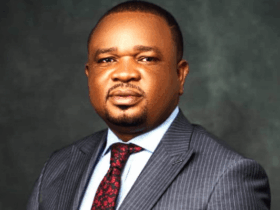
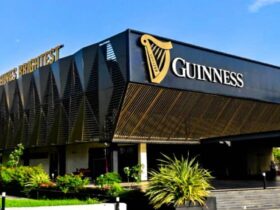
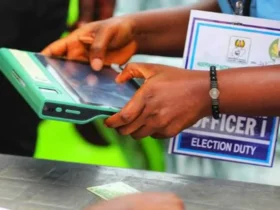

Leave a Reply